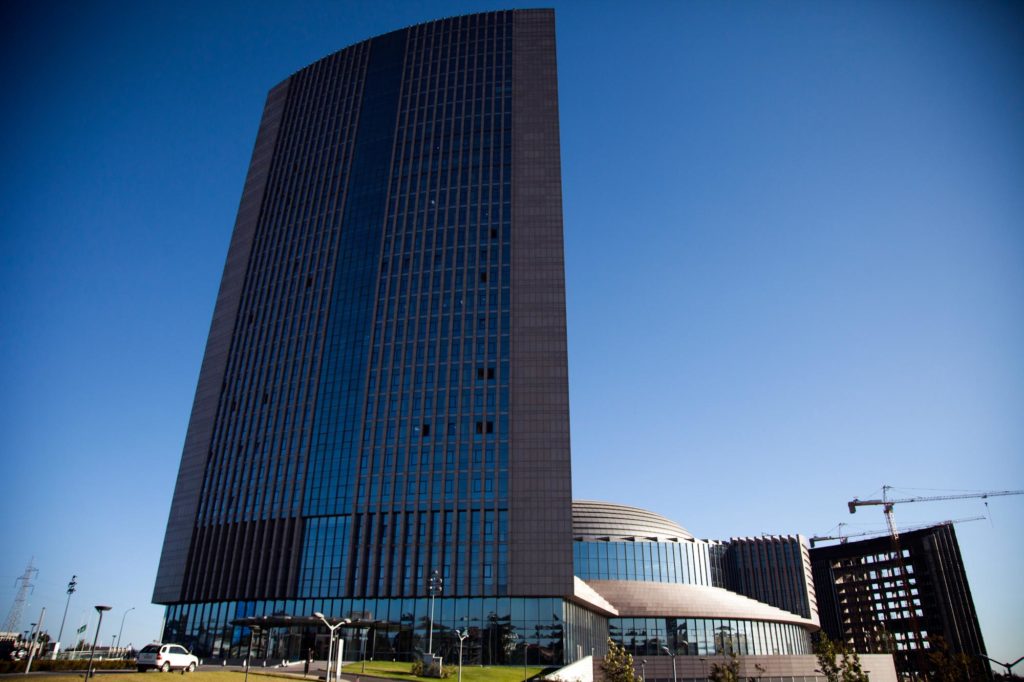
In this post, Dr Femi Amao (Reader in Law, University of Sussex), Dr Eki Omorogbe (University of Leicester, Lecturer & founder and co-chair of the International Law and Policy in Africa Network (ILPAN)) and Dr Adaeze Okoye (Principal Lecturer, University of Brighton) introduce a forthcoming blog series which draws on a June 2021 webinar organised jointly by the International Law and Policy in Africa Network and the African Union Law Research Network. The focus of the webinar was on combatting corruption in the context of Africa, the African Union (AU) and its member states.
Corruption is not unique to Africa and the African Union, however recent findings of widespread institutional corruption by the audit of the African Commission initiated by the Executive Council, play into the stereotype of high levels of corruption in the continent. Similar allegations were levelled against the African Union’s (AU) African Peer Review Mechanism in 2020. This is against the backdrop of endemic corruption in member states of the AU. The recent trial of the former president of South Africa, Jacob Zuma, on corruption-related allegations is an example of the ongoing problem.
The problem of corruption has significant implications for socio-political and economic development and for human rights. Indeed, it is because of corruption’s extensive impact that some scholars – such as Truelove and Grossman – have suggested that it should be characterised as a violation of human rights.This is because corruption perpetuates discrimination, prevents the full realization of human development by negatively affecting economic, social and cultural rights and leads to authoritarian and repressive behaviour that impedes civil and political rights, distorts the provision of social services and hampers economic development. These issues are causes for concern for stakeholders of the AU.
The impact of corruption on the socio-political and economic development in Africa requires better understanding and analysis in order to be able to develop strategic and effective solutions to the problem. There is evidence of member states’ attempts to address the issue of corruption in policies and legislation. However, as noted by contributors at the webinar, there are very few success stories in this respect. This is largely because of the involvement of government institutions in corrupt practices across the continent.
This joint webinar took up the important task of exploring these issues from the African perspective. For instance, Kuwali, in his contribution, advocates what he described as a ‘commend and condemn’ strategy as a way forward. The strategy is based on a ten-point agenda aimed at correctly identifying the causes of corruption and addressing those causes in strategic ways. Iyi, in his contribution, also suggests taking a unique philosophical and religious perspective in the design and implementation of strategies towards addressing the problem.
Contributors also looked at the issues from a sectoral perspective. As Home notes in his contribution, in which he discusses corruption in the land sector, there are historical, political, social and legal factors that have contributed to the prevailing situation in the continent. Home correctly traces the factors to colonial history, the customary/tribal land tenure system and various foreign interests. These factors need to be taken into account in designing effective responses.
Olivier, in her contribution, focuses on how the issue of corruption plays into illegal trade in wildlife and human trafficking. She examines the impact and effect of the problem and looks at ways in which the AU and member states could deal with the associated problems. D’Orsi’s contribution examines the issue from the Higher Education sector’s perspective. He identifies a range of domestic factors that have played a significant role in shaping the problem of corruption and the potentials of contextualisation.
As some of the contributors note, the AU has recognised the need for and importance of a regional strategy to combat corruption. To this end, the African Union Convention on Preventing and Combating Corruption was adopted in 2003 and it came into effect in 2006. The Convention could be regarded as a consensus on what African states should do in the areas of prevention of corruption, criminalisation, international cooperation and asset recovery. As Hajer Gueldich correctly points out, implementation and compliance with the instrument by member States has been weak. It is therefore imperative to identify new ways to improve implementation and compliance.
In the current Covid 19 climate, corruption has also become a major factor in Covid contracts and procurement globally. It is therefore not surprising that corruption has affected African states’ response. Consequently, the webinar also addressed corruption issues in the context of Covid 19 responses and how state responses could be improved and strengthened.
We aim to start a serious conversation on solutions to the problem of corruption from the African perspective, building on various ideas suggested at the event. As our conversations continue, we hope to refine and develop these suggestions, to form the basis for major policy proposals from the African Union Law Research Network and International Law and Policy in Africa Network.


Leave a Reply